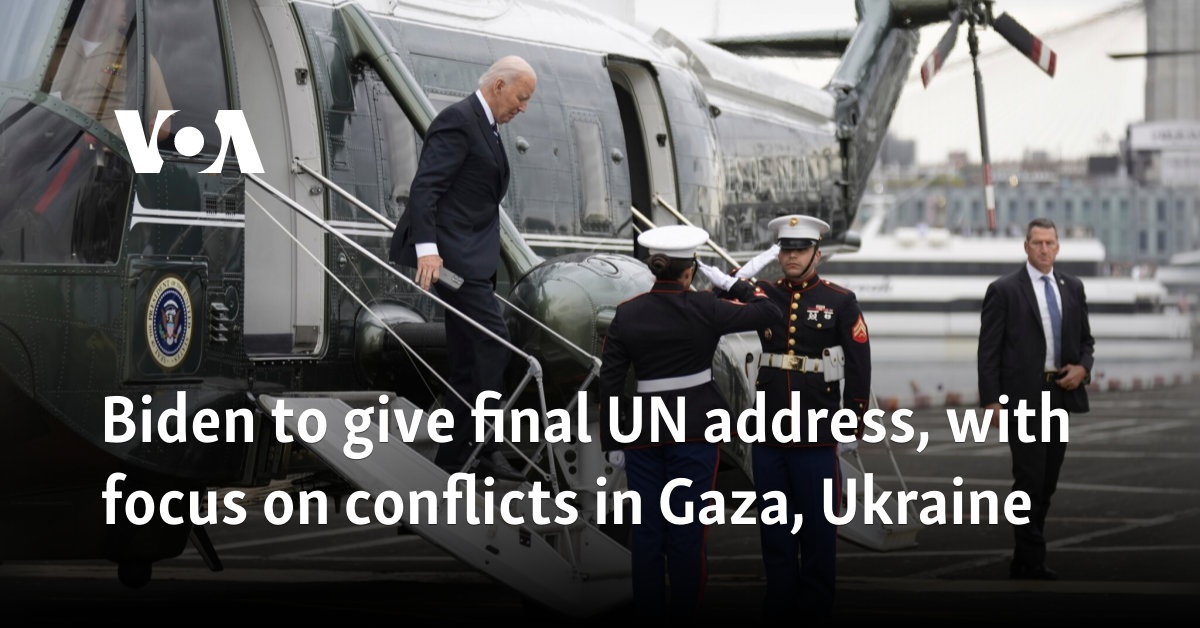
This article was originally published on VOA News - America. You can read the original article HERE

This week marks the last time President Joe Biden will address the world’s major international forum: the hundreds of leaders who gather each year for the United Nations General Assembly.
His early Tuesday speech comes at a clutch moment, says U.S. ambassador to the U.N. Linda Thomas-Greenfield.
"We say this every year, but this UNGA could not come at a more critical and more challenging moment,” she said in a briefing last week at the U.N. “The list of crises and conflicts that demand attention and action only seem to grow and grow."
Atop that list: Gaza. The U.S. position is not in line with the rest of the general assembly, which last week overwhelmingly passed a resolution demanding that Israel end its occupation of Palestinian Territory within the next 12 months. The United States was among the 14 no votes.
Thomas-Greenfield said the U.S. vote is in line with Washington’s opposition to "unilateral measures that undermine the prospect of a two-state solution.”
Analysts expect Biden to discuss his support of Israel and his support of Ukraine in this year’s address. He will spotlight these two conflicts as major challenges as he ends his presidency.
“With the Middle East, this looks like, you know, ‘How do you keep the lid on this and hope the conflict doesn't spiral out of control into a regional war?’” said Jim Kessler, executive vice president for policy at Washington-based think tank Third Way. “And I think that's anybody's best guess, about what's going to happen.”
One thing is painfully clear: As the Israel-Hamas conflict nears the one-year mark, nearly 100 hostages are thought to remain in Hamas’ custody. The White House says bringing them home is its top priority, and the key pillar of a deal to halt the fighting between Israel and the U.S.-designated terrorist group.
For months, Biden’s emissaries have raced between Qatar and Cairo to try to bring the sides together. And for months, they have appeared to be on the precipice of a deal, only for it to fall apart.
Kessler said many leaders will give Biden a warm reception during his valedictory speech, because he has used his term to rebuild alliances and re-establish global norms.
“There is a lot of affection for him out there in most nations,” he told VOA. “Of course, there's a few where there is not. And there's real fear of what it would mean if Donald Trump were president.”
Professor Michael Cox at Chatham House said world leaders have concerns about another Trump term.
“Ukraine might have most to be worried about. Trump after all has never shown much inclination to support Ukraine.”
Kim Lewis contributed from Washington.
This article was originally published by VOA News - America. We only curate news from sources that align with the core values of our intended conservative audience. If you like the news you read here we encourage you to utilize the original sources for even more great news and opinions you can trust!










Comments